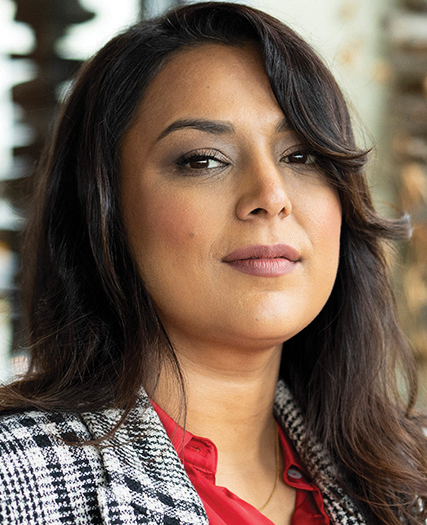Reflection, hope, and optimism
 |
| Dr Ramneek Dosanjh |
As I think back on the year and the significant privilege I’ve had to serve as your president, I am sincerely grateful for the opportunity and for each of you who has continued to show up despite the hardships and tribulations we have faced. I marvel at and admire your tenacity, dedication, and perseverance. In my travels across the province, both virtually and in person, from urban to rural to remote communities, your contributions to medicine are not only obvious, but also astounding. You have continued to rise above and make a significant and positive impact while traversing uncharted waters during a health care crisis in a constrained system.
Our ability to inspire and lead has never had such a critical influence as it does now. It is in times of uncertainty and scarcity that people look to us for guidance and reassurance, and I do believe our future is in great hands. I also believe that a reimagining is necessary for a system redesign that delivers desirable health care outcomes and achieves health care equity. So as we embark on a significant undertaking to transform our medical landscape and culture, I look to invigorating creative opportunities that will allow us to dramatically shift our future. Because the future lies with those who create it.
My presidential platform was dedicated to visibility for justice, equity, diversity, and inclusion. I find inspiration for a better tomorrow in our collaborative recognition of the need for a culture change in health care. Within the deep spirit of this work, we need to look through a lens of truth and reconciliation to build a framework that allows our health care system to thrive. We need to not only consider our most marginalized populations, but also lead with the intention to serve their best interests while at the same time developing—and fostering—partnerships that serve the health of our entire province. We also need to consider all aspects of health, not just our work in medicine. We know that health includes a myriad of facets, which is why we need to be deliberate in our inclusion of the social determinants of health while planning what happens in our system. We are only as healthy as our system, yet at times it seems we are a series of disjointed maladies. We need to shift from being disease focused to having more of a holistic health focus that encompasses all interactions, even those outside our specific system that impact and influence one’s overall health: adverse childhood experiences, our societal interactions, the way we live, and the way we see ourselves and one another. It’s time to look at primary prevention, wellness and healthy communities, and our leadership contributions in the reform of our health care system.
My hope is to continue to radically change the face of medicine and advocate for equity and improvement. What we allow will continue. The status quo has to go. We need to continue to forge and expand partnerships that foster growth within our patient communities and that will allow us to transform health care in our province in exemplary ways.
There are unique opportunities before us to have a collective impact that will substantially shift systems. We need to remember that the power of our voice, the power of our ideas, and the power of us can change the world. We are the leaders our health care system and our patients have been waiting for, and now is the time to lead this change.
—Ramneek Dosanjh, MD
Doctors of BC President
hidden
 |
| This work is licensed under a Creative Commons Attribution-NonCommercial-NoDerivatives 4.0 International License. |
